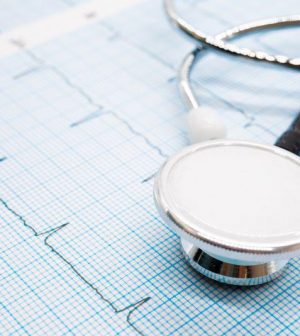- Could Your Grocery Store Meat Be Causing Recurring UTIs?
- Are You Making This Expensive Thermostat Error This Winter?
- Recognizing the Signs of Hypothyroidism
- 10 Strategies to Overcome Insomnia
- Could Artificial Sweeteners Be Aging the Brain Faster?
- Techniques for Soothing Your Nervous System
- Does the Water in Your House Smell Funny? Here’s Why
- Can a Daily Dose of Apple Cider Vinegar Actually Aid Weight Loss?
- 6 Health Beverages That Can Actually Spike Your Blood Sugar
- Treatment Options for Social Anxiety Disorder
AI Might Boost Detection of A-Fib

An artificial intelligence (AI) program trained to analyze cardiac ultrasounds can detect abnormal heart rhythms that a doctor is apt to overlook, a new study reports.
“Atrial fibrillation can come and go, so it might not be present at a doctor’s appointment,” said corresponding author Dr. Neal Yuan, a staff scientist at Smidt Heart Institute in Los Angeles. “This AI algorithm identifies patients who might have atrial fibrillation even when it is not present during their echocardiogram study.”
During atrial fibrillation, which is commonly called A-Fib, the upper chambers of the heart sometimes beat in sync with the lower chambers, but not always, making it difficult to detect. Deaths related to A-Fib have been on the rise for more than 20 years.
Yuan’s team theorized that AI could be trained to analyze echocardiogram images, helping doctors identify subtle changes in the hearts of patients whose arrhthymias are undiagnosed. Echocardiograms use sound waves to produce heart images.
While some patients with A-Fib have heart palpitations, shortness of breath and other symptoms that lead to a diagnosis, sometimes A-Fib causes no symptoms at all. Left untreated, A-Fib can cause heart failure and stroke.
By 2030, an estimated 12.1 million Americans will have A-Fib, the U.S. Centers for Disease Control and Prevention projects.
For this new study, researchers trained an AI program to study more than 100,000 echocardiogram videos of A-Fib patients. It was able to distinguish between videos showing normal and abnormal heart rhythms, and it correctly predicted which patients would develop A-Fib within 90 days.
Its success rate was better than that using known risk factors to gauge a patient’s odds for developing A-Fib, researchers said.
“The fact that this program predicted which patients had active or hidden atrial fibrillation could have immense clinical applications,” said co-author Dr. Christine Albert, chair of cardiology at the Smidt Heart Institute.
The findings were recently published in the journal npj Digital Medicine.
More information
The American Heart Association has more about atrial fibrillation.
SOURCE: Cedars-Sinai, news release
Source: HealthDay
Copyright © 2026 HealthDay. All rights reserved.










